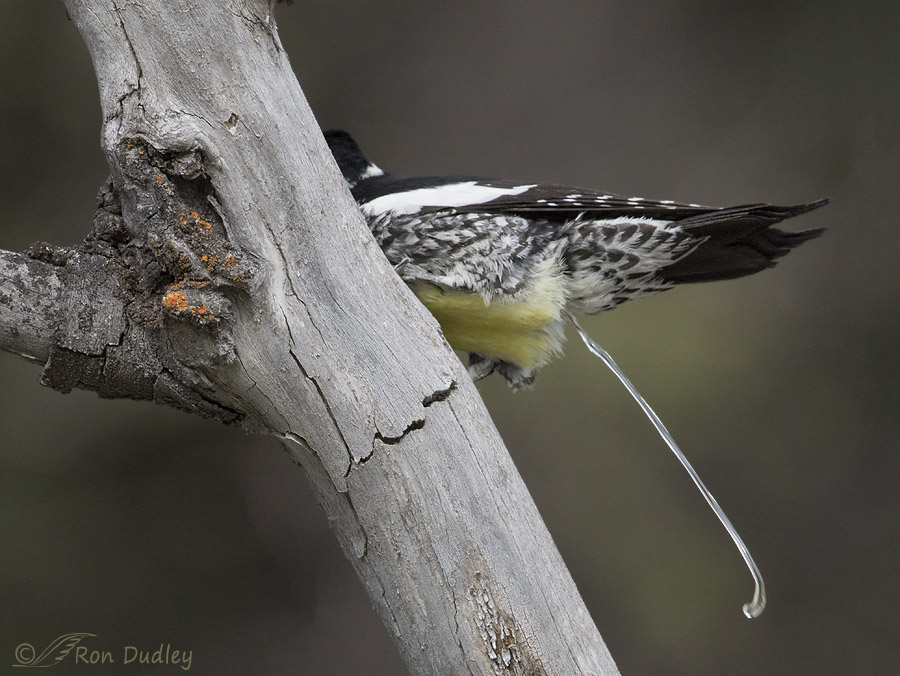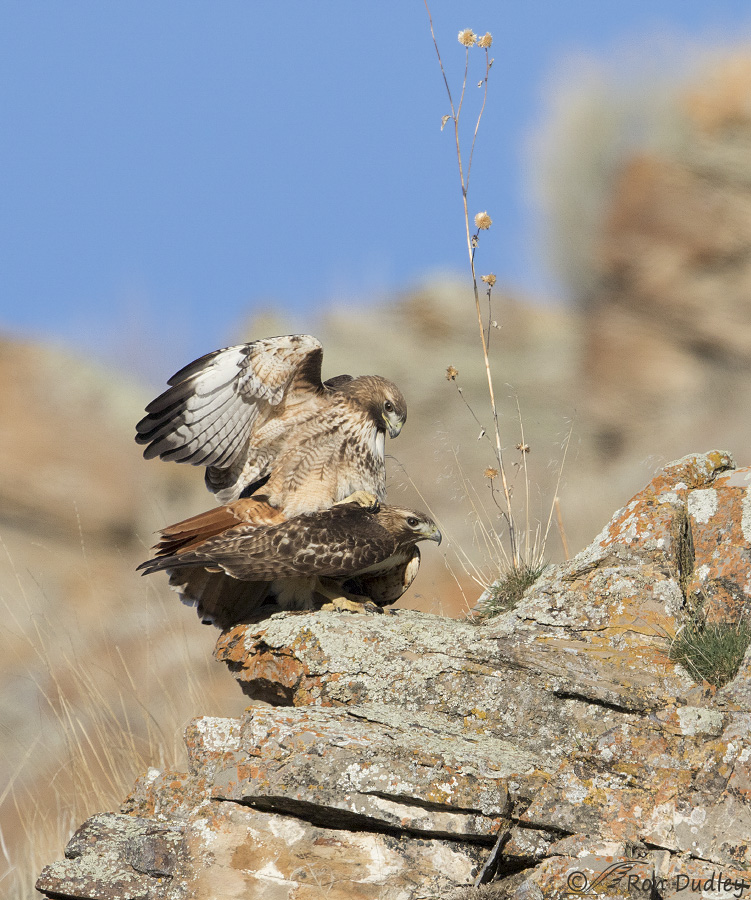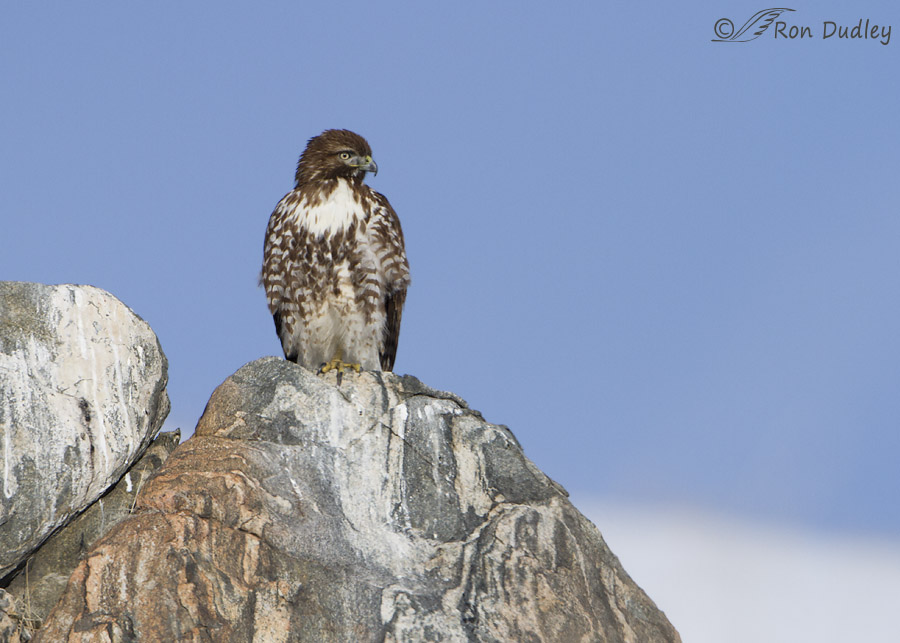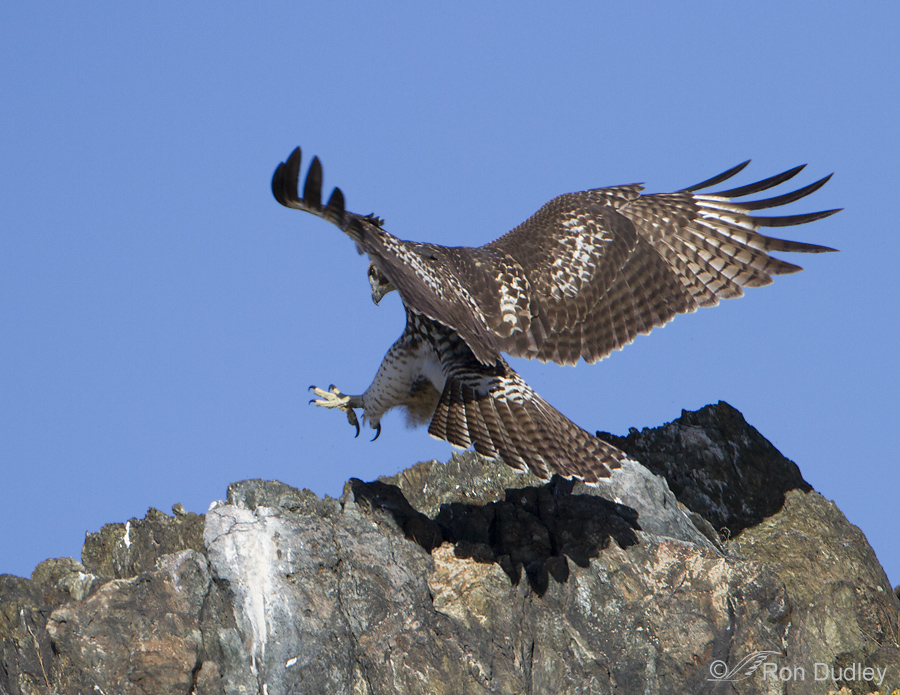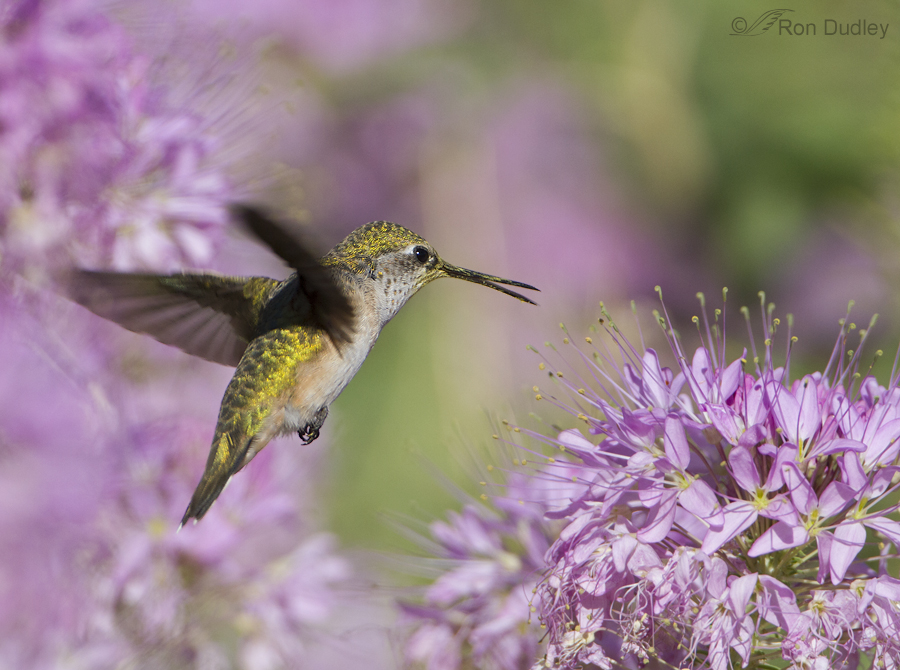Tag: whitewash
Mating Red-tailed Hawks And A First Look At The Resulting Chicks
The Cloaca And A Lesson In Bird “Poop”
Whitewash
Landing Red-tailed Hawk
Some Interesting Hummingbird Biology
Poop, Perches and Personal Preferences
Many raptors are “sit and wait” hunters, which means they often hunt from an elevated perch instead of “on the wing” and Red-tailed Hawks are well-known for this practice. An elevated perch provides good views over a large area and no extra energy need be expended in flight while looking for food. Typically these birds will use the same productive perch repeatedly over long periods of time, which presents a challenge to the photographer – poop (hereafter referred to as “whitewash”). Whitewash consists largely of crystalline uric acid (it’s more complicated than that but I’ll try not to stray into a discussion of the functions of the cloaca), which tends to be bright white. That whitewash can create some aesthetic and ethical conflicts between a “natural shot” and an image that has been “Photoshopped” to death, primarily by use of the clone tool. Many photographers routinely clone out whitewash and/or droppings and I’ll admit that I’ve done it before, but for me it’s an ethical dilemma because I much prefer to leave my images as natural as possible since I consider myself to be a “nature photographer”. In fact, right now I’m struggling with a series of Horned Lark images that I really like, but there’s a large, fresh and very conspicuous dropping right in front of the birds foot that most would find distracting. I could clone it out but every time I looked at that image I would know what I’d done. Canon 7D, 1/4000, f/5.6, ISO 640, 500 f/4, natural light, not baited, set up or called in A couple of days…


